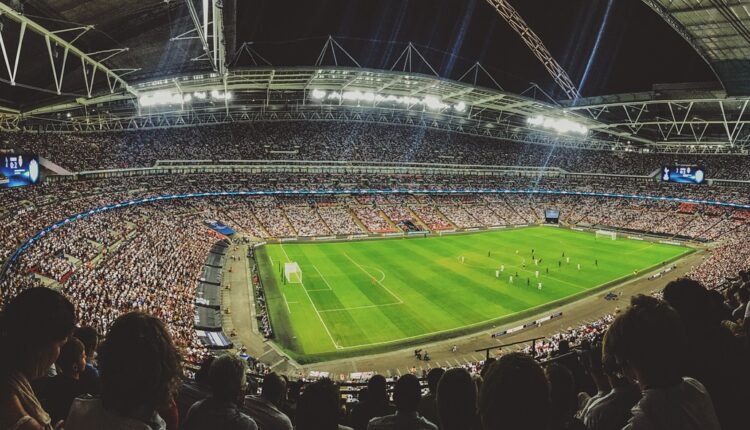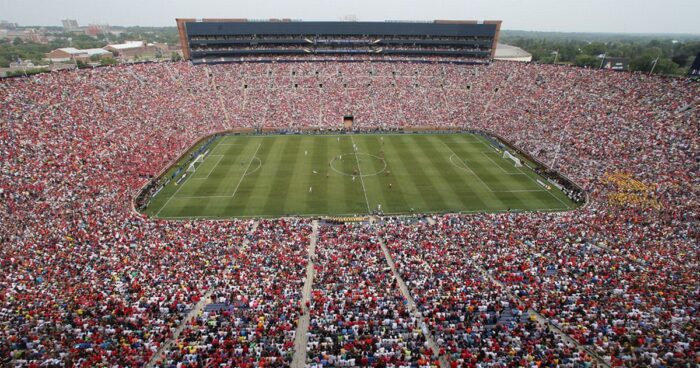
Will Premier League Games Be Played Abroad?
Fifty years ago, playing Premier League games outside of the UK was not conceivable, but today not only is it conceivable, but it is something being discussed and considered, though not without due opposition. The initial proposition was voiced as early as 2008 but was fiercely rejected by fans and prominent soccer figures such as Alex Ferguson. The concept of domestic leagues playing games overseas seems to have worked for the major US sports leagues, the MLB, NFL, and NBA.
What it does is allow fans who can’t visit their favourite team’s home stadium to see their favourite stars in real life, engage as a fan very physically, chanting and cheering on their team. This kind of engagement – improving access to services, products, or experiences – can be found across various industries. For instance, in the iGaming industry, operators offer an online casino bonus – which can come in various shapes and sizes – to existing and prospective players. What this allows those players to do is play at their online casino without having to deposit funds from their bank accounts or digital wallets. It, essentially, functions as a demo, a tester, a reason to try that online casino. It’s a very successful program. Check more about this http://nodepositcasinos247.com/.
It’s no wonder the Premier League, with its already global audience, is trying to further establish this audience with these domestic games being played abroad.
Earlier Attempts For Going Global

Talks of the Premier League going abroad have been an ongoing process for quite some time. In fact, the clubs were all ready to play at another venue way back in 2010-11. The move was aimed at avoiding the chilling winters of Europe. The club management was happy with the decision, and football associations from south Asia and the middle east were very enthusiastic about watching their favourite stars play live in their stadiums.
But the League managers were discontent with the fact that the matches would be played at the opposite end of the globe. The League’s managers’ discontent and the upset domestic fans made sure that the plans to go abroad were shelved soon enough.
How Would It Work?
The idea of clubs playing on international venues is not new and has been simmering for almost six years now. People who are privy to inside news have spoken to news agencies about the possibility of the League conducting several rounds of feasibility studies to take the matches to stadiums abroad.
The initial proposal would include an additional round of fixtures to the existing 38 games. But some friendly matches will be played before the much talked about 39th round is added to the leagues.
The clubs are quite enthusiastic about playing in venues abroad. A part of the enthusiasm stems from the fact that a match between Manchester United and Real Madrid saw a massive crowd in a stadium in the US. However FIFA and UEFA dismissed the idea and criticised club owners for lack of consultation. There is also the possibility of playing pre-season games abroad to increase the hype around the upcoming season. So if the matches at all go abroad, they will be in the form of pre-season matches and not in-season ones.
Current Premier League chief executive Masters has declined that there are discussions around this idea and has said it is not on their agenda.
The Financial Implications

The Premier League has lucrative overseas broadcast deals (over $6 billion), and taking the game abroad would increase the revenue from these deals and generate new revenue streams for the league. Billions of new fans could be attracted to the Premier League, especially in the Asian markets.
It is a well-known fact that Japan is a Manchester United stronghold and fans are willing to stay up all night to catch a live game at 2 am. Imagine staging a Man U match in 60 000 stadiums of Japanese fans who have never seen their favourite players in action.
The potential cash boost would be beneficial for the smaller teams, too. Teams like Sheffield United and Bournemouth could play against the bigger teams on international stages. This would give them better marketing, grow their fan base, and increase their broadcasting revenues. All this cash flow would help them buy better players and move higher on the League rankings.
The Positives
- Rewarding the global fans of football. There is no denying that the Premier League has big fans in other continents, especially in Asia. Many surveys have reported that Asian football fans stay awake at 2 am in the middle of the night to watch their favourite stars in action. So taking the game to their home stadiums can be a great way to reward the ardent fans of the game.
- Increased practice and competitiveness. Footballers have a tight schedule, but not all clubs are as busy. So if these clubs get some extra practice at an international venue, it will not be a bad idea.
- Players from all over the world play in the Premier League. In 2019 six Chinese players were a part of the League. So playing in a global venue makes these players feel more at ease.
The Opposition
It would not be a fair discussion without looking at the disadvantages of staging international games abroad.
- Fatigue and exhaustion for players are a genuine concern because, as it is, the calendar does not have a winter break, and adding a 39th game could be a breaking point for some players, especially with travelling.
- Fans opposed the idea in 2008 because it seemed as if they would be robbed of watching their teams.
- Which games would be played abroad, and what would the criteria be based on? If you take a final match to a foreign country, you may lose out on domestic broadcasting revenue. If you stage a nondescript game overseas, nobody may come to watch.
Potential Venues

So there is a fair possibility that the Premier League will be played abroad, but the possible venues for the matches are still a matter of great speculation. Countries like China, the USA, India, Indonesia and Brazil have been in discussion as possible places where the match can take place.
Places like China, India and Brazil are emerging economies and have a great love for football. The demand for the tickets and the love for football, and obviously the state of facilities like stadiums and infrastructure that a country can provide, will play a role in ultimately deciding the venue if and when the English Premier League goes global.
Last Thought
Over the years, the NFL and MLB have integrated themselves on the international scene and have been positively rewarded in monetary value and recognition for the sports. In 2019 the Red Sox vs. NY Yankees game was sold out at the West Ham United grounds. In that crowd of 35 000 people, we can only imagine how many people were watching a live baseball game for the first time.
How many kids walked away as the future Babe Ruths of the next decade? This is the kind of non-monetary impact playing on international stages can have. While many may still be sceptical, we look at Spain and Italy, which have successfully staged their Super Cup games in China and Saudi Arabia.
We are in an era where global economic conditions call for boxing thinking and moving away from the traditionalist view of playing football. All sports leagues are part of a global sports league, and keeping things at a domestic level could prove detrimental financially and for the sports itself.
